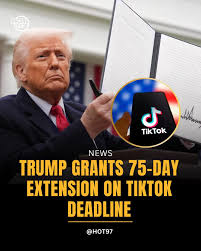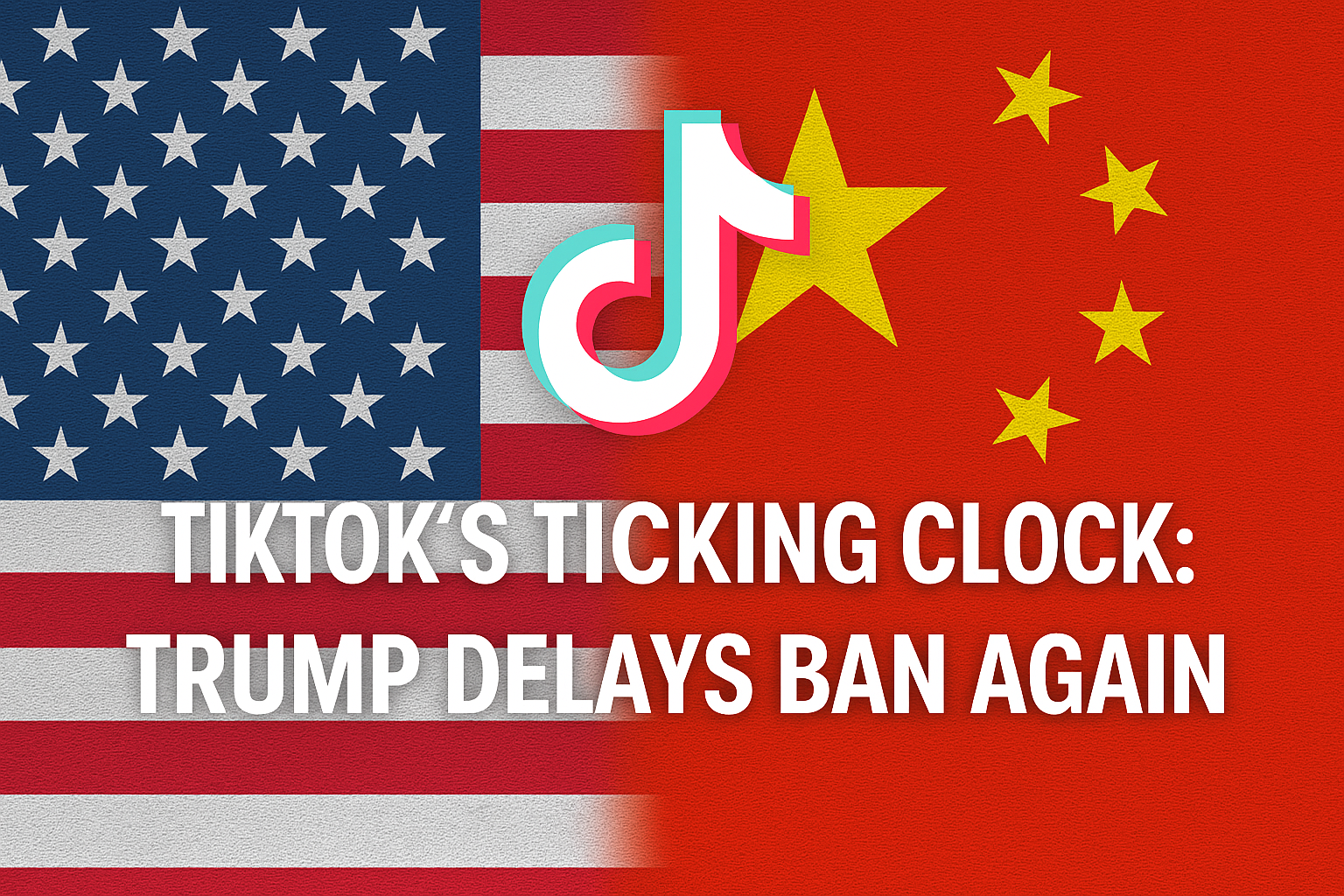Introduction
In a significant move that highlights the complex intersection of technology, politics, and international relations, President Donald Trump has granted TikTok a 75-day extension to finalize a deal separating it from its Chinese parent company, ByteDance. The video-sharing app, which was previously facing a Saturday deadline to avoid a U.S. ban, now has until mid-June to restructure and comply with national security mandates.
Background: TikTok’s Legal Limbo
TikTok has faced intense scrutiny from U.S. lawmakers and intelligence officials over concerns related to data privacy, algorithm control, and potential ties to the Chinese government. The concern stems from Chinese laws that allow the government to compel companies like ByteDance to hand over sensitive user data.
Despite widespread bipartisan support, a federal law requiring TikTok to divest from ByteDance was paused earlier this year by President Trump, even after it was upheld by the Supreme Court. This latest extension marks his second delay in enforcing the law
"The deal requires more work to ensure all necessary approvals are signed," Trump stated on Truth Social. "We do not want TikTok to 'go dark.'"
The National Security Concerns
U.S. officials continue to warn about the dangers of Chinese access to American user data and TikTok’s powerful recommendation algorithm. Critics fear that the app could be used to promote propaganda or misinformation, particularly during politically sensitive times such as elections or international conflicts.
Senator Mark Warner, Democrat of Virginia, emphasized:
Mark Senator Warner, Democrat of Virginia, emphasized: “If this ends up with a deal where the algorithm stays in Beijing, then the whole thing’s a scam.”
Lawmakers insist that any resolution must ensure that the Chinese Communist Party has no control over user data or the app’s content curation.
Negotiations and Potential Buyers
Negotiations have included various U.S. investors and tech giants. While Amazon reportedly submitted a bid to acquire TikTok entirely, another option on the table is a spinoff involving current U.S.-based ByteDance investors. Companies like Blackstone, Silver Lake, and Andreessen Horowitz have all expressed interest in taking a stake.
ByteDance confirmed ongoing talks but noted:
"There are key matters to be resolved. Any agreement will be subject to approval under Chinese law."
Implications for U.S.-China Relations
This delay comes amid escalating trade tensions between the two countries. Just this week, President Trump imposed a 34% tariff on Chinese goods, prompting swift retaliation from Beijing. Trump has hinted that TikTok’s fate could be tied to broader trade negotiations with China.
Tech experts, like Lindsay Gorman from the German Marshall Fund, argue that delaying the enforcement of a law supported by bipartisan legislation could be seen as compromising democratic principles.
"That is the purest victory out there — that a democratic country... is declining to enforce [its laws] on pressure from a foreign government," Gorman said.


The Role of Tech Platforms
Apple, Google, and content delivery networks like Akamai have all played a role in TikTok’s continued operation in the U.S., despite the legal uncertainty. Apple and Google briefly removed TikTok from their app stores until the Department of Justice confirmed they wouldn’t face penalties.
Concerns remain that these companies could be liable for future legal actions if they continue to distribute TikTok without clarity on its legal standing.
What’s Next for TikTok?
With the new mid-June deadline, the TikTok saga remains far from over. The app continues to be a cultural mainstay with over 170 million users in the U.S. alone. Whether ByteDance will find a suitable buyer or investor restructuring that satisfies both U.S. lawmakers and Chinese regulations remains to be seen.
What is certain, however, is that TikTok’s future will serve as a defining moment in how the U.S. handles tech companies with foreign ties in an increasingly globalized world.
